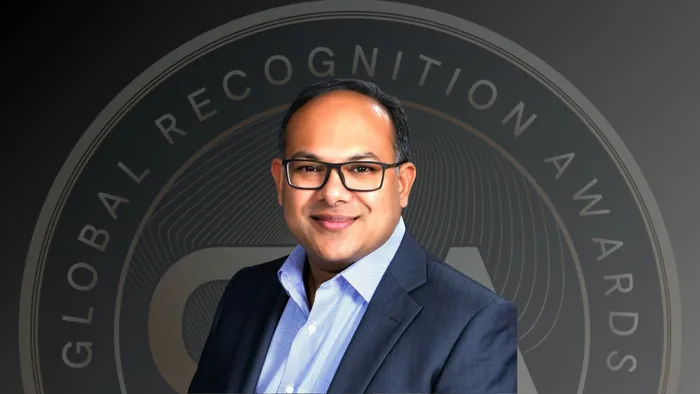
Photo Courtesy of Deepak Shinto
Image: Supplied
When Deepak Shinto moved across eight countries to establish human resources teams from the ground up, he discovered that the most complex corporate challenges often require the simplest workforce solutions.
The hospitality industry veteran has spent his career navigating the intricate balance between operational efficiency and staff engagement, developing workforce strategies that span continents and cultures. His method of human resources management reflects a deep understanding that successful organisations are built not just on processes but on people who feel valued and empowered to contribute their best work.
Shinto's international experience has shaped his perspective on guidance in ways that extend far beyond traditional HR practices. "I'm a global talent management leader specialising in workforce strategy, talent growth, and institutional effectiveness across hospitality and healthcare sectors," he explains, describing a career that has taken him through diverse markets and company structures. His professional credentials include the Fellow of the Chartered Institute of Personnel and Development (FCIPD) from CIPD, UK, and the Certified Human Resources Leader (CHRL) designation from HRPA, Canada, reflecting his formal qualifications and official recognition in the field. His work demonstrates how planned human resources direction can drive measurable enterprise outcomes while creating inclusive workplace cultures.
Forming teams across borders
The challenge of leading human capital initiatives across eight countries has given Shinto unique insights into the complexities of global workforce management. Each market presented distinct cultural norms, regulatory requirements, and staff expectations that required careful navigation and adaptation. His experience covers hospitality and healthcare sectors, industries known for demanding operational requirements and high-stakes customer service standards.
Shinto's strategy for large-scale recruitment efforts reflects his understanding that hiring is fundamentally about matching company needs with individual aspirations. "With experience leading and managing human capital in eight countries, I've built high-performing teams, launched large-scale recruitment efforts, and led cultural and operational changes that improved engagement, cut costs, and supported firm growth," he notes, highlighting the measurable impact of calculated HR guidance.
The operational changes he has led demonstrate how effective human assets management can simultaneously improve worker satisfaction and reduce corporate costs. This dual focus on people and performance has become a hallmark of his direction style, showing that team member engagement and company efficiency are not competing priorities but complementary objectives that reinforce each other when properly aligned.
Planned integration and long-term vision
Shinto's ability to align talent management initiatives with broader institutional goals sets him apart in the human resources field. His advanced professional designations, including FCIPD and CHRL certifications, highlight the depth of expertise he brings to establishing inclusive people strategies. This reflects an understanding that diversity and inclusion are ethical imperatives and enterprise necessities in today's global marketplace. This perspective has informed his tactic of streamlining human capital operations while focusing on worker advancement and engagement.
The recognition he received through the 2025 Global Recognition Awards acknowledges his contributions to advancing HR practices in the hospitality industry. However, the award represents just one milestone in a career dedicated to demonstrating how deliberate human resources leadership can drive company success. "My expertise includes creating inclusive people strategies, streamlining talent management operations, and aligning HR with long-term institutional goals," Shinto explains, describing a method that views human resources as a calculated firm function rather than an administrative support role.
His work in cultural change initiatives shows how HR leaders can serve as catalysts for company transformation. Shinto has demonstrated that effective people management requires analytical skills and emotional intelligence by simultaneously focusing on staff engagement and operational efficiency. His ability to inspire and motivate others while maintaining ethical decision-making standards has enabled him to build trust across diverse teams and institutional levels.
Innovation in human capital management
Shinto's strategy to encourage innovation within HR practices reflects his understanding that the field must evolve to meet changing workforce expectations and enterprise requirements. His hospitality and healthcare experience have provided insight into how different industries handle talent progress and corporate effectiveness. This cross-sector perspective has informed his strategies for forming high-performing teams that can adapt to changing market conditions.
His work impacts broader industry practices in human resources management, extending beyond individual organisations. His focus on talent progress recognises that worker growth and company success are interconnected, requiring HR leaders to think strategically about career advancement pathways and skill-building opportunities. This long-term perspective on human capital investment has proven effective in reducing turnover and improving staff satisfaction.
As organisations grapple with evolving workforce dynamics and global talent competition, Shinto's experience offers valuable insights into how HR guidance can adapt to meet these challenges while focusing on fundamental principles of respect, progress, and planned alignment that make workplaces productive and fulfilling.
